Aelia Ariadne Augusta
Information on contents and insights (click here)
The figure of Aelia Ariadne stands out among those of other historical characters as one of the most influential sovereigns of her time and at the same time one of the less considered in historical criticism and in fiction as well. The reason probably derives in large part from her being a woman in a historical moment in which a real misogynist reaction is materializing against the affirmation of women in the political, economic and social fields within the Roman world. This reaction, led by the Church and supported by the senatorial nobility in Constantinople, will rapidly spread throughout the empire and will push back women to a state of total subjection just after they had almost managed to acquire equal political rights.
Aelia Ariadne Augusta lives and reigns in the moment of maximum freedom and independence for women, precisely at the transition between antiquity and the Middle Ages. After her, women will find increasing difficulty in expressing their potential: first in the West, where they will be substantially deprived of any possibility of learning, and then also in the East where the Orthodox Church will prove to be just as misogynistic as the Catholic one (even if these denominations will appear only several centuries later). Basically, for women to recover the level of freedom and independence acquired in the fourth century, they will have to wait until the twentieth.
Ariadne is born into a powerful family, and from the very beginning she is due to be either a protagonist or a puppet in the hands of others in what is the Great Game of her time: the fight for the imperial purple. To be precise, unlike her younger sister Leontia, Ariadne is not born "in the purple" (that is, within the imperial family), as her father Leo I ascends the throne immediately after her birth, and at the time this matters. But she grows up in the Grand Palace, inside the Sacred Enclosure that encompasses the various imperial pavilions, the park and even the military port at the far end of the Great City. Leo I (called "the Thracian" because of his province of origin) is the forerunner of a new dynasty; he acquires and consolidates his power by trampling on friends and employees; his wife Aelia Verina besides being considered the most beautiful woman in Constantinople is probably also the most ambitious: she has herself proclaimed Augusta next to her husband ("Augusta consort", or "young Augusta"), and gains her own slice of personal power inside the imperial administration: later she will defend this power with total lack of scruples. Ariadne learns from her parents and from the ruthless court environment what it means to fight not only to defend her power, but also to protect her own life.
Leo I inherits an empire, the one in the East, with many of the same problems that under his rule will lead to the fall of the one in the West: economic and demographic crisis, doctrinal dispute among the bishops, migrations of barbarian peoples in the Balkans and Persian invasions in Syria; on top of that, the pervasive barbarian presence at court and in the army. This last point in particular has direct consequences on Ariadne's personal life, who will grow in hatred for the Teutons and in respect for the Romanitas, albeit in a Christianized version, which her father stubbornly tries to restore.
Leo I Augustus, after all, is a decent emperor in a period of poor sovereigns: he puts back a semblance of order in the tax authorities and public administration, mediates among the bishops and faces the barbarians with decision, even trying - without too much success - the card of cooperation with the dying Western empire. But above all, he is determined to free the empire from the barbaric presence within his own ranks. To this end he decides to fight fire with fire: given the inevitability of having to recruit barbarians into the army due to the demographic and vocational crisis among the citizens of the empire, he decides at least to recruit them within the empire itself. He turns to the traditionally warlike and still semi-barbarian Isaurian tribes of central Anatolia, and recruits among them en masse to reinforce the Comitatense troops of the field army, and even the Palatine troops of the imperial guard. He also chooses the husband of his eldest daughter from among these Isaurians, and still very young Ariadne is to marry the eldest Isaurian comes in the service of her father: that Tarassicodissa who, to be better accepted at court, will change his name to Zeno.
The other daughter, Leontia, goes for equity to Patricius, son of the eldest Teuton comes at court: the Magister Militum Praesentalis Aspar. This proves to be a short-term settlement, as Leo and Zeno scheme a complex plot that deliberately induces Aspar to revolt: Zeno's Isaurian troops are ready, and the revolt is quenched in blood. Teuton power inside the palace is crushed and the young and inept Leontia finds herself free again, even before having consummated the marriage.
Unfortunately, Leo I reign is marred by the military disaster of the Battle of Cape of Africa, where the united fleets of East and West are defeated by the Vandals: it is a defeat that in addition to causing the collapse of the West determines the economic crisis of the east and thus the end of the emperor's popularity.
Meanwhile, the marriage between Ariadne and Zeno leads to the birth of the heir designated to the throne: Leo II is crowned still a child on the death of his grandfather, and given his minor age Zeno manages with the support of his wife to be crowned "young" August, colleague of his son born "in the purple" and therefore his "elder". This happens against the will of the widowed empress Aelia Verina, who will always reproach her daughter of having acted to deprive her of the purple.
This intricated family situation - with an august child, an adult theoretically subjected to his son, a widowed empress and an empress mother all under the same roof - is further entangled by the sudden death of the young emperor: Leo II dies under the somewhat suspicious circumstances just a few months after the coronation.
There has been much debate on the real causes of the death of the august child (among other things, he was almost the same age as his western colleague Romulus), and some even went so far as to accuse his own mother of poisoning. Others have pointed the finger at the father, or even at the grandmother, both unscrupulous enough to justify the suspicion. The clues against her mother are circumstantial, but in my opinion Ariadne's subsequent behaviour makes it difficult to consider her the monster she should have been to poison her own teenage son.
The one who certainly profits from the premature death of his son is Zeno, who is automatically promoted to "elder" Augustus. The one who does not profit at all of the tragedy is Aelia Verina, who in spite of her plots finds herself once again excluded from the purple.
Ariadne, on the other hand, as the consort of Zeno, the eldest daughter of the deceased Leo I and the mother of the equally deceased Leo II, eventually becomes herself Augusta, to the scorn of her mother.
Zeno is not a good sovereign: calling him a mediocre administrator is a generous compliment that perhaps he does not deserve, but in comparison with his western and eastern predecessors he is basically average. He is an ignorant soldier of barbaric extraction, instinctively led to intrigue and cowardice, substantially corrupt but still endowed with a minimum of good will. He will try to do well, but for practically all of his reign he will have to fight against a remarkable chain of revolts by his subordinates and members of the extended family, chiefly his mother-in-law Aelia Verina. Incredibly, he will always manage to best his opponents (often even more inept than him), also thanks to the fortunate presence of loyal soldiers and courtiers who are determined to avoid new disasters for the empire.
Ariadne - who added "Aelia" to her name as a badge of the rulers of her dynasty - loyally supports her husband by trying to make up for his obvious diplomatic and administrative shortcomings, and little by little she creates her own personal power base within the Palace: a power base that she will be able to exploit in due time by demonstrating an unsuspected decision-making capability and strength of character.
Ariadne is a woman of her time: cultured, relatively emancipated thanks to her privileges of birth, and determined to play her part in the government of Rome... At least of that New Rome which arose on the banks of the Golden Horn and is now virtually the sole capital of an empire deeply shaken and resized by the events of recent years.
History doesn't tell us much more about her; this is strange, considering that analysing the events of the reigns of both Zeno and his successor Anastasius it is evident how many fundamental decisions in moments of crisis are clearly attributable to her.
Why is the chronicle of the time so stingy with references to Aelia Ariadne, Augusta?
The explanations can be many: lost data, missing or disgraced sources, hostility on the part of the senatorial class, widespread misogyny in the following centuries, or perhaps even an objective lack of actual relevance on her part... But among all the possible reasons for this remarkable lack of historical coverage of her character, the one that seems most plausible to me is the reluctance on the part of the Church to permit excessive positive exposure by a woman in the role of sovereign. Unlike other female protagonists of the time (Hypatia, Amalaswinthe and Irene of Athens to name three from different backgrounds), Ariadne is a devout Chalcedonian (today we would say Catholic) and loyally supports the Church, which she sees as one of the pillars supporting the empire; for this reason the writers of the time and above all later - almost all of them members themselves of the clerical class - will refrain from denigrating her directly, as they will with the other powerful women. But in any case, placing due emphasis on the role of power of a woman - however devout - is in sharp contrast with the interests of a Church which, under the influence of St Paul and St Augustine, is permeated with misogyny and determined to deny women any public function. Hence, Ariadne will be straightforwardly ignored in her role as a sovereign, and nothing of her doing will be recorded by the chronicler.
This being the case, it would certainly not be an isolated case: there are many characters unjustly denigrated or even erased from history by the Church because of their doctrinal positions or their origins which appeared inappropriate from the point of view of an organization aimed at shaping the whole of society in his image. And the image of the Church was deeply patriarchal.
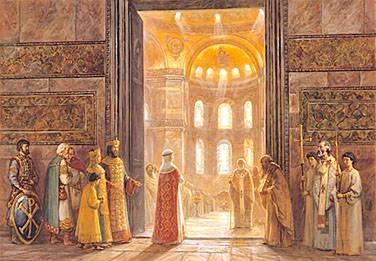
Here, then, is that Ariadne, raised in purple, hardened by personal mourning and the ruthless hostility of her own mother, finds herself facing and enduring for a long time responsibilities never fallen before on another woman before her... Without history taking note of her generous efforts to continue his father's struggle to restore the romanitas in a wounded but still vital empire.
Other women before her held positions of power in the Roman world, but the supreme political power was achieved only by a few. Cleopatra, Zenobia and Galla Placidia showed uncommon courage and strength, but all were eventually defeated by the events. Euphemia held the purple as full regent, and of course Aelia Verina was her own husband junior Augusta... But only Ariadne will come to be Augusta senior and to rule in her own right.
This far, we saw the public figure that emerges, with some narrative license, from the scarce information that history has recorded about this empress. But what about her private life and her feelings as a woman?
Obviously, if the chronicles are so shy of details about her public life, almost nothing remains of her private one. We know that she married twice, both times to men much older than her, certainly unattractive but politically appropriate. The Church - and the writers under its influence - often very diligent in detecting supposed excesses and possible unspeakable depravities of women too much in evidence, are completely silent on her intimate life, suggesting exemplary modesty or extreme prudence.
We know that her mother was a very beautiful woman, and being her father of normal presence and soldierly health, it is likely that she was endowed too with a fair charm.
Finally, her family vicissitudes are well known: she soon loses her father, experiences an irremediable conflict with his mother, loses a young son in very dubious circumstances and lives with two politically convenient husbands she almost certainly does not appreciate from a sentimental point of view, but despite this she does not indulge in relations or affairs such as to be registered by anyone.
Obviously, it is possible that she was just a person lacking strong sentimental or sexual impulses, but it is more likely that she proved very careful in pursuing her passions, always true to her role and responsibilities in a commendable way, which should also be an example to many politicians of our times let alone those of the past.
For this reason, I took the liberty of attributing to her a serious story with another character ignored by the story but supported by her own ideals; a story with no outlets and that she will know how to manage without affecting her duties as a sovereign.
Overall, Ariadne's story unfolds as that of an eclectic and tormented woman, who out of a sense of responsibility will be able to sacrifice all of herself for the supreme good of what matters the most to her: Rome.
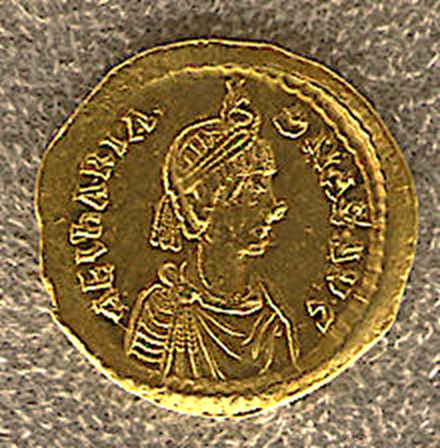
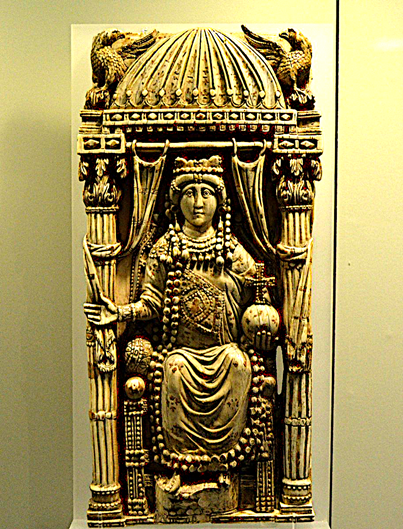
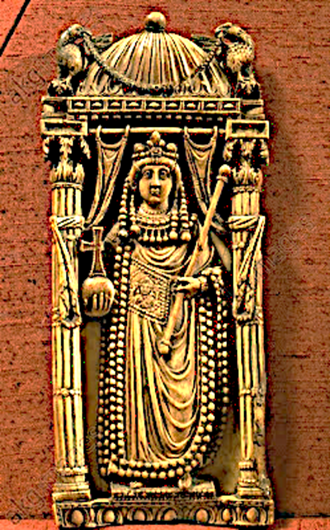





 Admin
Admin 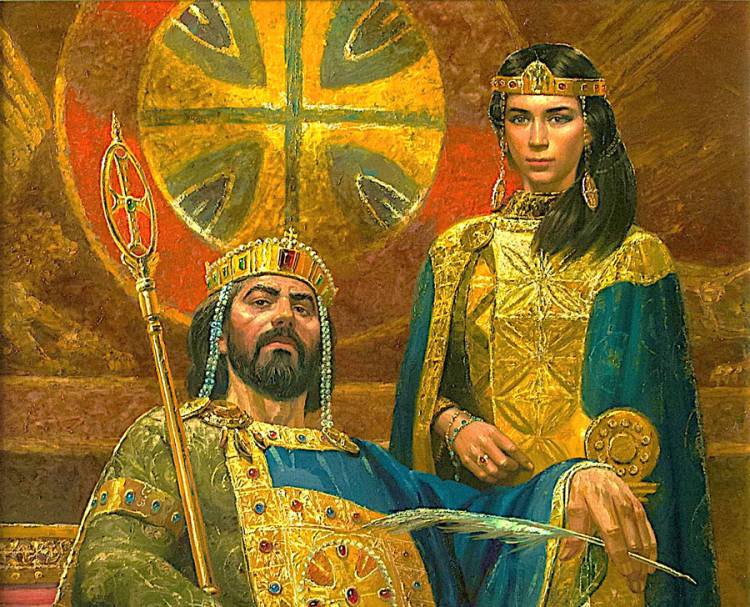
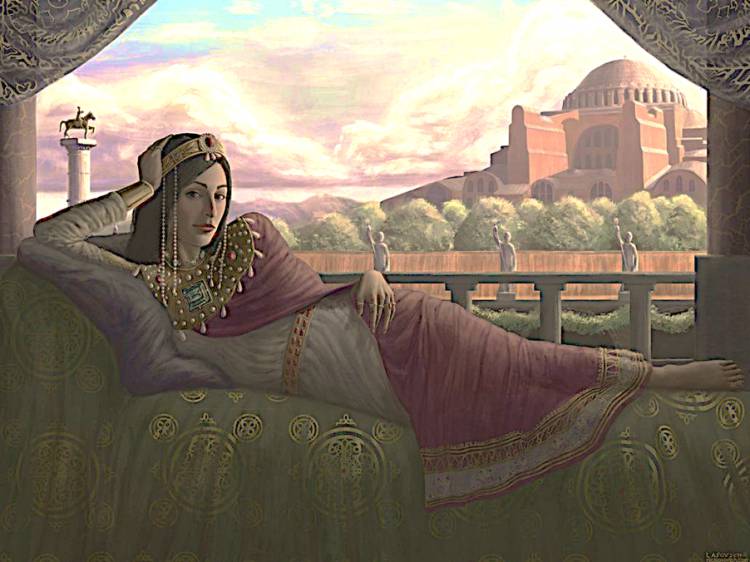
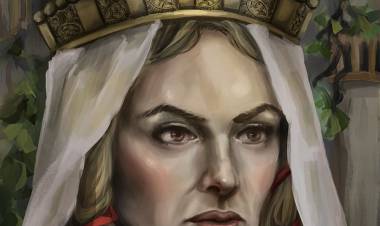
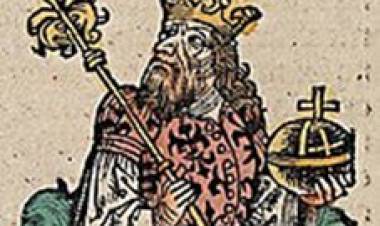










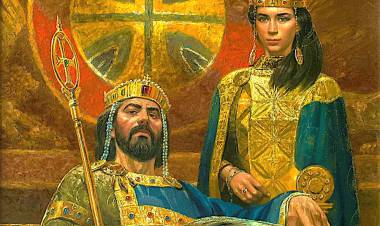


Comments (0)
Facebook Comments (0)